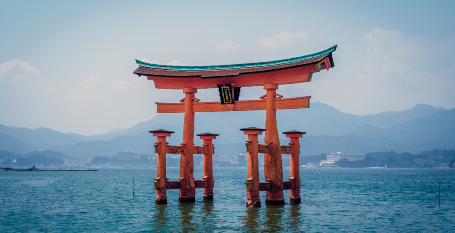Japan's Supreme Court has ruled that it is unconstitutional to require citizens to be sterilised before they can officially change genders.
The 2004 law said people could only change their gender if they have no reproductive capacity.
Wednesday's ruling came after a transgender woman filed a petition challenging the law. The woman's lawyer had argued that her reproductive ability has already been diminished by years of hormone therapy, adding that surgery entailed physical suffering and the risk of after-effects. Her request was denied by both the family and high court before she approached the Supreme Court.
The ruling by the Supreme Court reverses a 2019 verdict by the court which found the same law constitutional.
Japan is one of 18 countries that mandate the sterilisation surgery - a requirement that is also opposed by the World Health Organization. It is also the only Group of Seven (G7) nation that does not legally recognise same-sex unions.
What’s life like for LGBTQ people in Japan?
What’s life like for LGBTQ people in Japan? Let’s take a look at some of the key equality measures.
Is homosexuality legal in Japan?
Yes. Same-sex sexual activity has never really been addressed by Japan’s penal code.
Are there anti-discrimination protections in place for LGBTQ people in Japan?
Yes. Major cities have anti-discrimination provisions that protect against discrimination on the grounds of sexuality, but there’s not a comprehensive national framework.
Is there Marriage Equality in Japan?
No. Some city-level authorities have introduced partnership certificates which extend some legal recognition to same-sex relationships.
Japan’s constitution and civil code explicitly restrict marriage to opposite sex couples.
What’s life like for LGBTQ people in Japan?
While Japan can seem ultra-modern, underpinning Japan’s culture is a socially conservative and traditional view of the world.
Generally, Japan is fairly welcoming and accepting of LGBTQ people.
In larger cities, there is a visible LGBTQ community.
What’s the history of homosexuality in Japan?
Homosexuality and same-sex relations have been documented in Japan since ancient times.
In the pre-Meiji period, relationships inside Buddhist monasteries were typically pederastic. The older partner (the nenja) would be a monk, priest or abbot, while the younger partner (the chigo) would be an acolyte – an adolescent boy. The relationship would be dissolved once the boy reached adulthood or left the monastery. Both parties were encouraged to treat the relationship seriously and conduct the affair honourably, and the nenja might be required to write a formal vow of fidelity.
During the Tokugawa period, some of the Shinto gods – especially Hachiman, Myoshin, Shinmei, and Tenjin – came to be seen as guardian deities of nanshoku (male–male love).
Same-sex sexual activity was also common among the samurai – the warrior class. Among the samurai, it was customary for a boy in the wakashū age category to undergo training in the martial arts by apprenticing to a more experienced adult man. The relationship was based on the typical nenja, who loves, and the typically younger chigo, who is loved. The man was permitted, if the boy agreed, to take the boy as his lover until he came of age. These relationships were expected to be exclusive, with both partners swearing to take no other lovers.
Miyamoto Musashi – a legendary swordsman of the samurai era – is one of the most famous practitioners of the same-sex warrior lover tradition.
As Japan progressed into the Meiji era, same-sex practices continued. However, there was a growing animosity towards these practices. The practice of nanshoku began to die out after the Russo-Japanese War. Opposition to homosexuality did not become firmly established in Japan until the 19th and 20th centuries, through the Westernisation efforts of the Empire of Japan.












 列印版本
列印版本




















讀者回應
請先登入再使用此功能。